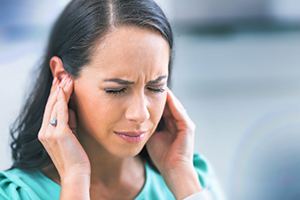 Medical professionals describe tinnitus as a perception of noise in one or both ears, despite no external sound. Currently, there are no cures or prescription drugs available to treat it. But researchers have identified six ways to reduce tinnitus or ringing in the ears.
Medical professionals describe tinnitus as a perception of noise in one or both ears, despite no external sound. Currently, there are no cures or prescription drugs available to treat it. But researchers have identified six ways to reduce tinnitus or ringing in the ears.
Impact
Over 50 million Americans suffer from ringing in the ears, known as tinnitus. Nearly 20 million people have chronic tinnitus, and about 2 million have an extreme or debilitating form of the condition. It’s safe to say that tinnitus has become a common health problem.
Hearing experts encourage people to protect their hearing by not listening to headphones or earbuds too loudly. In addition, wear hearing protection in all loud situations. Carry one or two pairs of inexpensive earplugs in your vehicle or purse. They’ll muffle loud sounds that can lead to hearing loss.
Causes
Medical experts believe there are many causes of tinnitus. Here are eight common reasons:
1. Loudness
Exposure to an explosion or loud sounds over time, such as music concerts or sporting events, can cause ear ringing.
2. Excessive earwax
A buildup of earwax can muffle hearing and cause ringing in the ears.
3. Aging
Adults often notice decreased hearing as they age, including tinnitus.
4. Ear infections
During a cold or the flu, nasal passages can swell, increasing ear and sinus pressure, and impairing hearing.
5. Medications
Antibiotics, antidepressants, diuretics, aspirin and anti-inflammatory or cancer drugs can cause temporary ringing in the ears.
6. Jaw problems
Ear pain or experiencing popping sounds when chewing food may indicate jaw misalignment, such as TMJ (temporomandibular joint), and cause tinnitus.
7. Blood pressure
Stress, alcohol, caffeine or hardening of the arteries can increase blood pressure, making the blood pump harder through the veins. In the blood vessels near the ears, increased blood pressure may create ringing in the ears.
8. Medical issues
Lyme disease, fibromyalgia and Meniere’s disease can create side effects that cause tinnitus.
Treatment
For years, researchers have studied tinnitus to understand how it creates the sensation of ringing in the ears It’s a condition that affects about 32% of Americans. Currently, medical experts have identified seven treatment options:
1. Magnesium
Scientists at the University of Leicester found eating foods high in magnesium, such as dark leafy greens, nuts, seeds, bananas, avocados and dark chocolate, helps control the ringing sound.
2. Acupuncture
This medical practice can stimulate areas of the brain where ringing in the ears initiates.
3. Minerals and vitamins
Scientists believe tinnitus may be linked to a deficiency in zinc and vitamin B12. One study showed that taking ginkgo extract and melatonin provided relief from tinnitus.
4. Black coffee
Researchers found that women who drank large amounts of caffeinated coffee reported lower incidences of tinnitus. They believe that caffeine stimulates the central nervous system and reduces tinnitus risk. However, too much caffeine also can increase blood pressure.
5. De-stress
Activities that lower stress, such as behavioral therapy and hypnosis, can help people decrease ringing in the ears. Other ways to alleviate symptoms include exercise, meditation, laughter and relaxation.
6. Sound therapy
Researchers have discovered that introducing other sounds can help take your mind off of the ringing in your ears.
7. Electrical stimulation
Scientists identified a treatment option that applies an electrical pulse to the individual’s head or neck while making a sound associated with tinnitus. Initial results show that this treatment option alleviates the annoying ringing sound.
Prevention
Many people use earbuds to listen to music or podcasts. They often turn up the volume to block out sounds around them. However, prolonged use of earbuds at a high volume can lead to hearing damage, including ringing in the ears.
Help prevent tinnitus by:
- Using quality ear protection every time you are near loud noises, such as a running lawnmower or chainsaw. This includes loud machinery, race cars and airplanes as well.
- Wearing noise-canceling earbuds or headphones when listening to music or any kind of audio.
- Keeping the volume level at 85 decibels or lower. If listening at a higher level, such as 100 decibels, take a break every 15 minutes to give the ears a rest. Never listen to any sound at full volume.
- Taking time each day to thoroughly relax. This can help, because tinnitus usually accompanies chronic anxiety and stress.
Need help with business planning products?
From comprehensive business planning to employee benefits, we can help create a financial strategy that’s best for your business.
Want the latest & greatest from our health blog
straight to your inbox?
Subscribe today for a periodic email with our latest posts.

